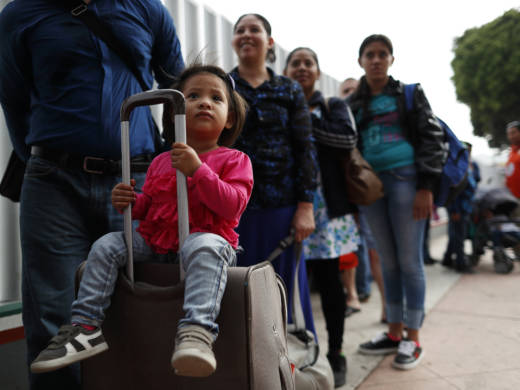Updated at 3:51 p.m. ET
The American Civil Liberties Union says it reached an agreement overnight with the Trump administration regarding the future of families separated at the Southwest border.
If approved by the court, the agreement would allow many of the parents to apply for asylum, according to the ACLU, even if they had already been issued deportation orders. The agreement would also open the door for parents who have already been deported without their children to return to the U.S. to pursue asylum claims, but only in “rare and unusual” cases.
The agreement lays out in detail how asylum claims can proceed, both for hundreds of families that have been reunified in the U.S., and for children whose parents were deported. In some situations, parents whose asylum claims were rejected at the earliest stage — known as the credible fear interview — will get a chance to present new information.
For about a thousand families, “it will get them another shot at seeking asylum,” said Lee Gelernt, the deputy director of the ACLU’s Immigrants’ Rights Project, in an interview.

9(MDAxOTAwOTE4MDEyMTkxMDAzNjczZDljZA004))
